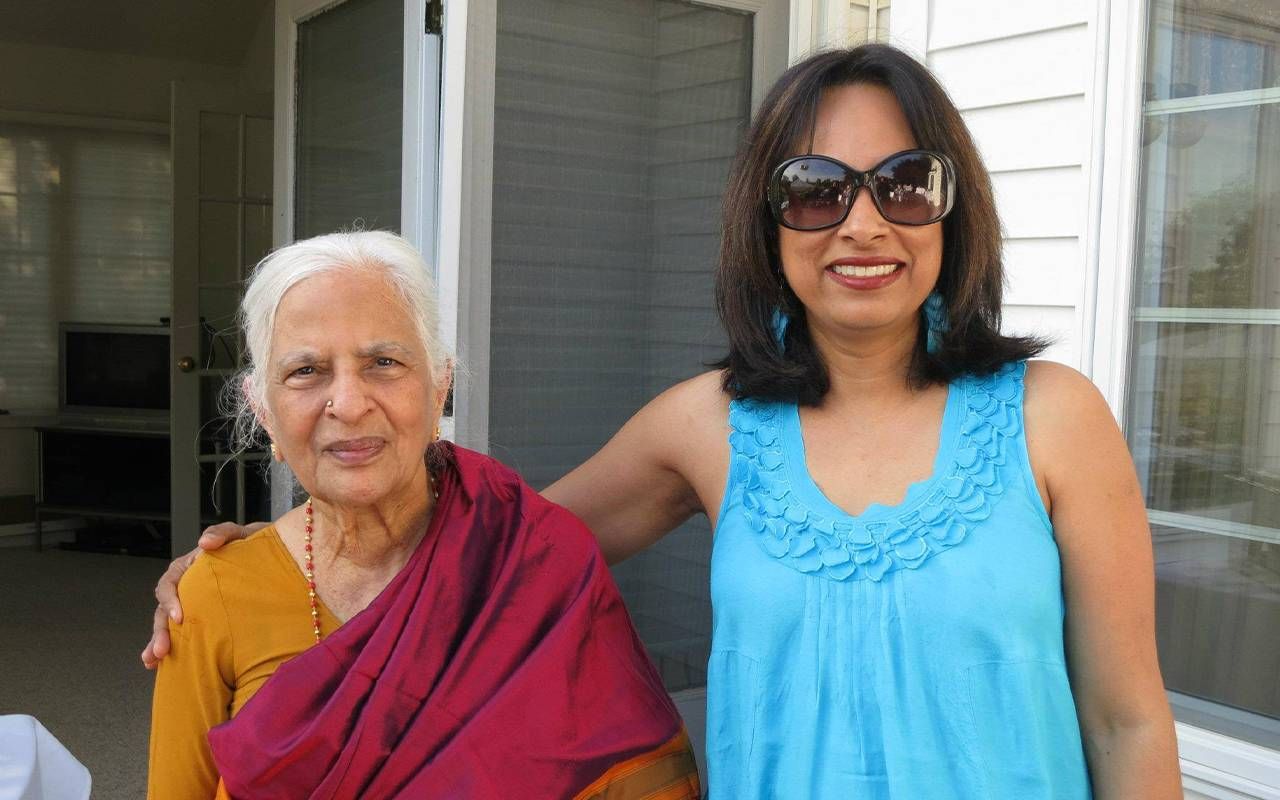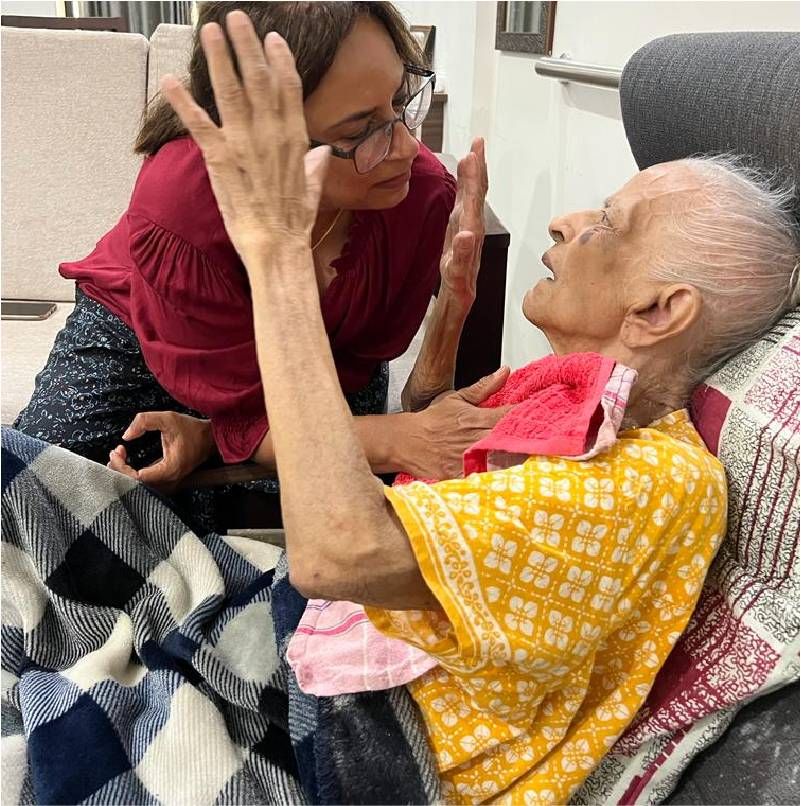Caring for Mom While Coming to Terms With A New Reality
'Nothing teaches like the doing' when it comes to being a caregiver
A few days before Christmas in 2019, my 86-year-old mother became increasingly confused about why she could not get up from a hospital bed. Repeatedly, she asked me to tell her what had happened.

My brother and I spent our days observing the medical staff at El Camino Hospital in Mountain View, California, as they administered frequent tests and even more regular doses of medicine to her. We took turns at night to sleep on a pullout chair-bed beside her.
My mother had been admitted to the hospital after a fall that caused multiple fractures to her pelvis. It was unclear precisely how many fractures. But looking at her scan results, one physician said he counted seven, and another mentioned three.
In the days that followed, my mother and I realized that our lives had changed significantly.
In the days that followed, my mother and I realized that our lives had changed significantly. She needed help, and taking care of her physical and emotional needs was now my responsibility.
Delrish Moss is a caregiver for his 75-year-old mother in Florida. Moss' mother first suffered a stroke when he was still serving as the police chief of Ferguson, Missouri. Moss left his job in Missouri in 2018 and went to Florida to care for his mother. He found his caregiving role "very humbling" and "outside of the training" he was used to.
In 2019, according to the National Alliance for Caregiving (NAC) and AARP, at least 38.9 million people — like Moss and me — provided informal and usually unpaid care and support to adults in the United States, and 73% of them were born between 1964 and 1928.
Moreover, as I came to realize, caregiving is an amorphous experience, which the 2020 Rosalynn Carter Institute for Caregivers report (RCI) identifies as "not defined by specific tasks or the amount of time spent." This makes it difficult for people to understand what's involved and how to navigate the emotional and physical labor involved.
The Initial Challenges
Both Moss and I had no warning that we would become caregivers. But as Moss put it, "nothing teaches like the doing." He had to learn to help his mom with daily tasks, take her on doctor's visits and assist her in dealing with her mental health issues. "It was a big learning curve," said Moss.
His mom had to learn to accept his help, even bathing and dressing. "She was a bit shy, a bit appalled. But we got through it," he said. The biggest challenge for Moss was helping his mom reconcile to the new realities.
"My mother displayed a lack of awareness of the permanence of her condition," Moss said. In her mind, she believed it was just a setback.
In my case, one of the things I learned in a hurry was that there was no getting off the treadmill of caregiving once you climb on. And for my mother, it was initially tough to accept help since she was so used to caring for others.
Those first days, I coped by taking cues from my mother on how to provide care. The sequence in which she preferred to put her clothes on, how she liked her coffee, when she wanted the drapes drawn, how she liked her pillows arranged, and how to steady her on stairs.
Juggling Responsibilities
A 2020 study on caregiver burden — the load, stress, and strain borne by a caregiver, also referred to as "intensity" — found that caregivers often carry multiple identities, providing "long-term care for loved ones in their roles as spouses, partners and children. The conflict between career, caregiving responsibilities and family needs place higher levels of burden on the caregiver."

As an empty nester, I was back to juggling care and career, finding myself distracted both ways —while providing care and working.
Dwayne Hodges took care of his mother before her death while living in New York; his mother lived in South Carolina. She had schizophrenia and lung cancer, and "managing her health really became a challenge," he said.
At the time, Hodges was going through a divorce and had equal custody of his children.
As a result, Hodges flew to South Carolina every six weeks, when his children were with his ex-wife, to take his mother on doctor's visits, buy clothes and groceries and attend to her needs.
In this way, he managed to be her primary caregiver (remotely and in person), parent his children and continue to earn a living. He did this for five years.
The Convenience Of Living Together
Having my mother at home allowed me to engage with her meaningfully, listen to music, watch her favorite TV show, reminisce about her youth, and help her with puzzles. But this convenience also made me hyper-focused on her.
Caring for my mother took a great deal out of me, and I often despaired at my situation. Yet, in quiet moments, I felt a sense of deep commitment.
One interesting study published in 2022 in the International Journal of Environmental Research and Public Health (IJERPH) looked at the intersection between physical proximity, emotional attachment, and caregiving burden. The results indicated that "informal caregivers are at risk of caregiver burden, and physical proximity to the care recipient may add to this negative outcome."
In addition, the researchers found that caregivers with high levels of emotional anxiety had a higher caregiver burden when they lived apart from their care recipient.
That was somewhat true for me. While I learned to be efficient with my time, separating from my mother emotionally proved challenging. I had to take myself out of my mother's physical orbit to change my caregiver identity.
It was hard during the pandemic, but once the lockdown was lifted, I went to coffee shops and drove to work to find my focus while carrying some guilt for separating.
Despair and Concern
It is well-established that caregiving has positive effects, including contributing to personal growth and a sense of purpose in life. That keeps many of us going, despite the burden.
In his younger days, Moss recalled how he and his mom would get up in the middle of the night and have a grilled cheese sandwich and some tomato soup "and just talk."
Moss said he had many of those moments while caring for his mom. While there were some setbacks, what mattered were the "heart-to-heart conversations and getting to know each other fully all over again."
Caring for my mother took a great deal out of me, and I often despaired at my situation. Yet, in quiet moments, I felt a sense of deep commitment.
On the occasions that I found her happy, whether at the sight of turkeys running through the backyard, the family dog licking her hand, or cooking her favorite meal, I found contentment, too. That held me together in the days, months, and years before her death in August, 2022.


